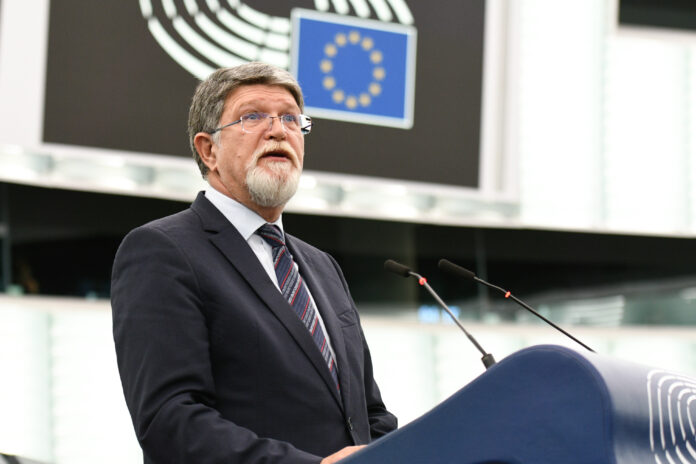The European Parliament has reported that high political tensions and polarisation stunt Montenegro’s attempt to join the EU. The report praises Montenegro’s commitment to EU integration, which enjoys significant public support. However, the lack of consensus and cross-party dialogue on issues of national importance has delayed the implementation of EU-related reforms and led to political and institutional crises in Montenegro.
The report was adopted with 529 votes in favour, 51 against, and 53 abstentions. It emphasises the urgent need for political stability, significant progress in major EU-related reforms, primarily electoral and judicial reforms, and the fight against organised crime and corruption. MEPs acknowledge the improvements in preventing corruption and welcome the positive efforts made in illicit trade, specifically cigarette smuggling. They urge Montenegro to develop a comprehensive strategy to combat human trafficking and protect its victims.
Disinformation campaigns and economic dependence
MEPs have expressed their approval of Montenegro’s steadfast commitment to align with the EU’s standard foreign and security policy, including adopting all sanctions following Russia’s aggression against Ukraine. The report also acknowledges Montenegro’s strong strategic alliance with the EU and condemns any attempts by the country’s authorities to challenge its NATO membership.
MEPs are gravely concerned about the influence of foreign actors, mainly from Russia, China, and Serbia, who engage in malign interference, destabilisation efforts, disinformation campaigns, and hybrid threats in Montenegro.
Given its previous indebtedness to the country, MEPs have called on Montenegro to reduce its economic dependence on China. They suggest that Montenegro explore greener and more transparent alternatives for financing infrastructure projects and continue using the Economic and Investment Plan for the Western Balkans and the EU Global Gateway Initiative.
Moreover, MEPs expressed concern about the deep political polarisation in Montenegro’s media landscape and urged the government to ensure independence for the public broadcaster. They have also called for the population and housing census to be conducted without any political interference as soon as the political stalemate in the country ceases to avoid further polarisation of society.
”This report, the last one in this parliamentary mandate, sheds light on the great internal political turmoil in Montenegro and another year of stagnation on the country’s path to EU membership. MEPs expect the formation of a government that will promote progress on the EU path and clearly and unequivocally support European policies and values, in accordance with the expectations of a significant majority of the country’s citizens,” said rapporteur Tonino Picula (S&D, HR).

